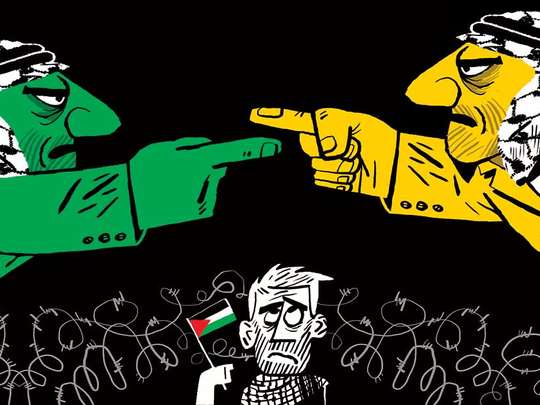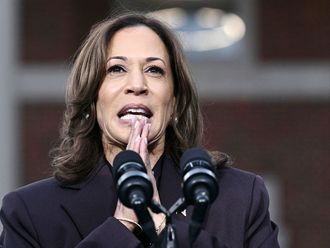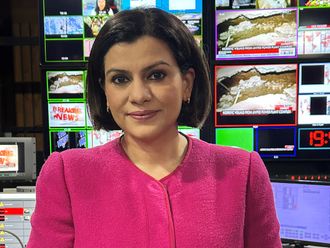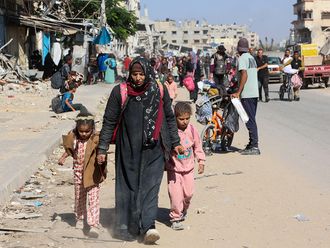
A new report issued by the Israeli rights groups, B’Tselem and HaMoked, accused the Israeli military of ‘systematic abuse’ of young Palestinian children. The abuse often follows the arrest of these kids who are often ‘caught’ participating in anti-occupation protests.
Every day brings about a plethora of disquieting news of abuse, violence, and violations of human rights. Yet for 10 years, Palestinian political elites have been caught in a confounding and futile conflict that has placed the interests of political factions above the needs of the people.
There appears to be two parallel conflicts taking place simultaneously: one in which ordinary Palestinians are fighting for their land, culture, freedom of movement, etc.; and another between competing Palestinian factions fighting for hallow prestige, false sovereignty and worthless titles.
One can be truly baffled and justifiably angered by the wasted time and energy that Fatah and Hamas representatives, and their supporters, spent attacking each other on every possible platform.
Had they united their ranks and redirected their wasteful efforts towards finding a common national strategy for liberation, the results for the Palestinian people might not have been as dismal.
In fact, it can be argued that the reconciliation agreement signed between the rival Palestinian factions in Cairo on October 12, was not a national unity accord — at least, not yet. For this to be achieved, the agreement would have to make the interests of the Palestinian people a priority, above factional agendas. Regrettably, the leadership crisis in Palestine is not new.
Since the destruction of Palestine and the creation of Israel in 1948, Palestinians found themselves beholden to international and regional power-play beyond their ability to control or even influence.
Hence, it is not surprising that most Palestinians had such huge respect for their late leader, Yasser Arafat. At least for a while, he successfully managed to challenge that disempowering paradigm.
Arafat, who led the Palestine Liberation Organisation (PLO), along with a generation of Palestinian nationalists, helped foster an independent Palestinian political identity and a national movement that, despite receiving Arab support, was not entirely appropriated by any particular Arab country.
The Oslo Accords, however, resulted in the demise of that movement. In reality, it was equivalent of the abrupt cancellation of every Palestinian political achievement since the war of 1967.
Despite the resounding defeat of Arab countries by Israel and its powerful western allies in that war, hope for a new beginning was born. Israel reclaimed East Jerusalem, the West Bank, and Gaza but unwittingly, unified most Palestinians territorially.
The outcome of the war also allowed Arafat and Fatah the opportunity to occupy the new margins that opened up as a result of the Arab retreat.
The PLO, which was originally managed by the late Egyptian president Jamal Abdul Nasser became an exclusively Palestinian platform. Fatah, which was established a few years prior to the war, was the party in charge.
When Israel occupied Lebanon in 1982, its aim was the annihilation of the Palestinian national movement, especially since Arafat was opening up new channels of dialogue. The United Nations, among other global institutions, began recognising Palestinians as a serious national movement deserving to be heard and respected.
In the short term, Israel achieved its main objective: Arafat was driven to Tunisia with his party’s leadership, and the rest of the PLO fighters were scattered across the Middle East, once more falling hostage to Arab whims and priorities.
The PLO’s exile became particularly evident as Palestinians launched their First Intifada (the uprising of 1987). An entirely new generation of Palestinian leaders began to emerge and a different identity, one incepted in Israeli prisons and nurtured on the streets of Gaza and Nablus, was sculpted.
The Madrid talks of 1991 was the first time that true representatives of the Palestinian people in the Occupied Territories took on an international platform to speak on behalf of Palestinians at home.
That endeavour was, however, short-lived. Eventually, Arafat and Mahmoud Abbas (today’s head of the Palestinian National Authority — PNA) secretly negotiated an alternative agreement in Oslo. This agreement largely sidelined the UN and allowed the US to assume its position as a self-proclaimed ‘honest broker’ in a US-sponsored ‘peace process.’
With the PLO, which represented all Palestinians, cast aside to make room for the PNA — which merely represented the interests of a branch within Fatah in a limited autonomous region — Palestinians became divided into groups.
1994, which witnessed the official formation of the PNA, was the year in which the current Palestinian strife was actually born. The PNA, under pressure from Israel and the US, cracked down on Palestinians who opposed Oslo and rightly rejected the ‘peace process.’
The clampdowns reached many Palestinians who took leadership positions during the First Intifada. Sadly, the Palestinian leadership in exile was brought back to crackdown on the leadership of the Intifada, while Israel stood aside and watched the spectacle.
Hamas, which itself was an early outcome of the First Intifada, found itself in direct confrontation with Arafat and his authority.
When Arafat died, after spending years under Israeli army siege in Ramallah, Abbas took over. Considering that Abbas was the brain behind Oslo, Hamas took the first step in a political manoeuvre that proved costly, running for the PNA’s legislative elections in 2006 and winning.
By emerging as the top political party in an election that was itself an outcome of a political process that Hamas had vehemently rejected for years, Hamas became a victim of its own success.
Expectedly, Israel moved to punish Palestinians. As a result of US urgings and pressures, Europe followed suit. The new government was boycotted, Gaza came under constant Israeli bombardment and Palestinian coffers began drying up.
A Hamas-Fatah civil war ensued briefly in the summer of 2007, resulting in hundreds of deaths and the political and administrative split of Gaza from the West Bank.
Officially, Palestinians had two governments, but no state. It was a mockery that a promising national liberation project abandoned liberation and focused largely on settling factional scores while millions of Palestinians suffered siege and military occupation.
Many attempts were made but failed to reconcile the two groups.
The truth is that the recent reconciliation agreement in Cairo is not an outcome of a new commitment to a Palestinian national project. Both parties are out of options. Their regional politicking was a failure, and their political programme ceased to impress Palestinians who are feeling abandoned.
For the Hamas-Fatah unity to truly become a symbol of national unity, priorities would have to change entirely so that the interests of all Palestinians would, once more, become paramount, and be considered above the interests of a faction or two seeking limited legitimacy, fake sovereignty, and American handouts.
Ramzy Baroud is a journalist, author and editor of Palestine Chronicle. His forthcoming book is ‘The Last Earth: A Palestinian Story’ (Pluto Press, London). Baroud has a PhD in Palestine Studies from the University of Exeter and is a Non-Resident Scholar at Orfalea Center for Global and International Studies, University of California Santa Barbara. His website is www.ramzybaroud.net.








